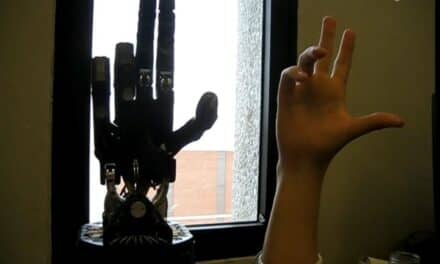 |
Every few years, a new technique arrives on the scene as a so-called noninvasive alternative to liposuction.
In the past, some practitioners focused on external ultrasound. Currently, the fad is mesotherapy and its related cousin, Lipodissolve (also known as injection lipolysis).
These controversial procedures have achieved massive public awareness, with media outlets (and practitioners) all over the country heralding these treatments as revolutionary ways to rid the body of stubborn fat deposits.
According to the American Society for Aesthetic Plastic Surgery’s 2006 Cosmetic Surgery Statistics, 28,901 people in the United States paid for injection lipolysis procedures last year—six times the number of procedures performed the previous year.
Many in the mainstream media have bought into the fad, too, running news stories filled with fantastic claims made by the purveyors of mesotherapy or injection lipolysis.
However, in a recent Allure magazine article, writer Joan Kron analyzed the risks, benefits, and even unethical marketing of these controversial procedures.
Although I do not practice fat-melting injections, I am very interested in their possible utility once they are proven safe and effective.
Some interesting points about fat-melting injections:
- The FDA Office of Public Affairs recently issued this statement: “We are aware of the practice of using Lipodissolve and are investigating and evaluating it. It is not FDA approved. In fact, there are no FDA-approved drugs with an approved indication to dissolve fat and the FDA cannot assure the safety and efficacy of these types of drugs. Consumers need to know that this is a buyer-beware situation. These are unapproved drugs for unapproved uses and we can’t guarantee consumers’ safety.”
- The Kansas State Board of Healing Arts in August voted to outlaw injection lipolysis treatments, except for approved drug trials. A court judge then blocked the ruling from taking effect, in response to legal action from an injection lipolysis chain. A trial is pending.
- It is against the law to perform injection lipolysis in Canada and Brazil.
- England has prohibited the advertising of injection lipolysis, and medical malpractice insurance no longer covers these procedures.
- Though some documented scientific papers show that fat-melting injections work well and without major side effects, none have included an FDA-approved clinical trial to formally document their safety and efficacy.
- Reportedly, Realself.com has found that employees from two “fat-melting clinics” posed as patients and posted numerous comments on message boards propagandizing these treatments.
MIXED REACTION
Lipodissolve and mesotherapy were very popular subjects at the recent American Society of Plastic Surgeons’ annual meeting in Baltimore. The response from physicians ranged from those who were impressed with the results and safety of the treatments to those who considered these types of treatments as scientifically unsupported.
 |
In fact, former ASPS President Rod Rohrich, MD, FACS, was quoted in Allure as stating that injection lipolysis clinics are practicing “human experimentation, due to the lack of significant data to support the claims to the consumer.”
A clinical trial sponsored by the Aesthetic Surgery Education and Research Foundation is scheduled to begin soon and is intended to assess the safety and efficacy of injection lipolysis.
To be conducted under FDA supervision, the study is expected to follow patients for 46 weeks to evaluate a single form of injection lipolysis and collect data on local and systemic reactions, as well as any long-term complications. The study will include imaging, biochemical analysis, and clinical measurements for objective evaluation of the efficacy and safety of the treatment.
 |
| See also “Fat Treatments Draw Scrutiny” by Rima Bedevian in the July 2007 issue of PSP. |
So, what do I think of fat-melting injections?
Although these treatments are very intriguing, as a physician my first priority is the safety of my patients. Before I use any of these techniques, they must be proven safe and effective. Otherwise, they are considered human experimentation and should be explained to the patient in this way.
Too many practitioners, however, get blinded by greed and see treatments such as these as a ticket to riches. Our patients deserve better than that.
Anthony S. Youn, MD, is a board-certified plastic surgeon and founder of The Hills Plastic Surgery and Laser Centre in Rochester Hills, Mich. He can be reached at (248) 650-1900 or via his Web site, www.beverlyhillsbeauty.com.





